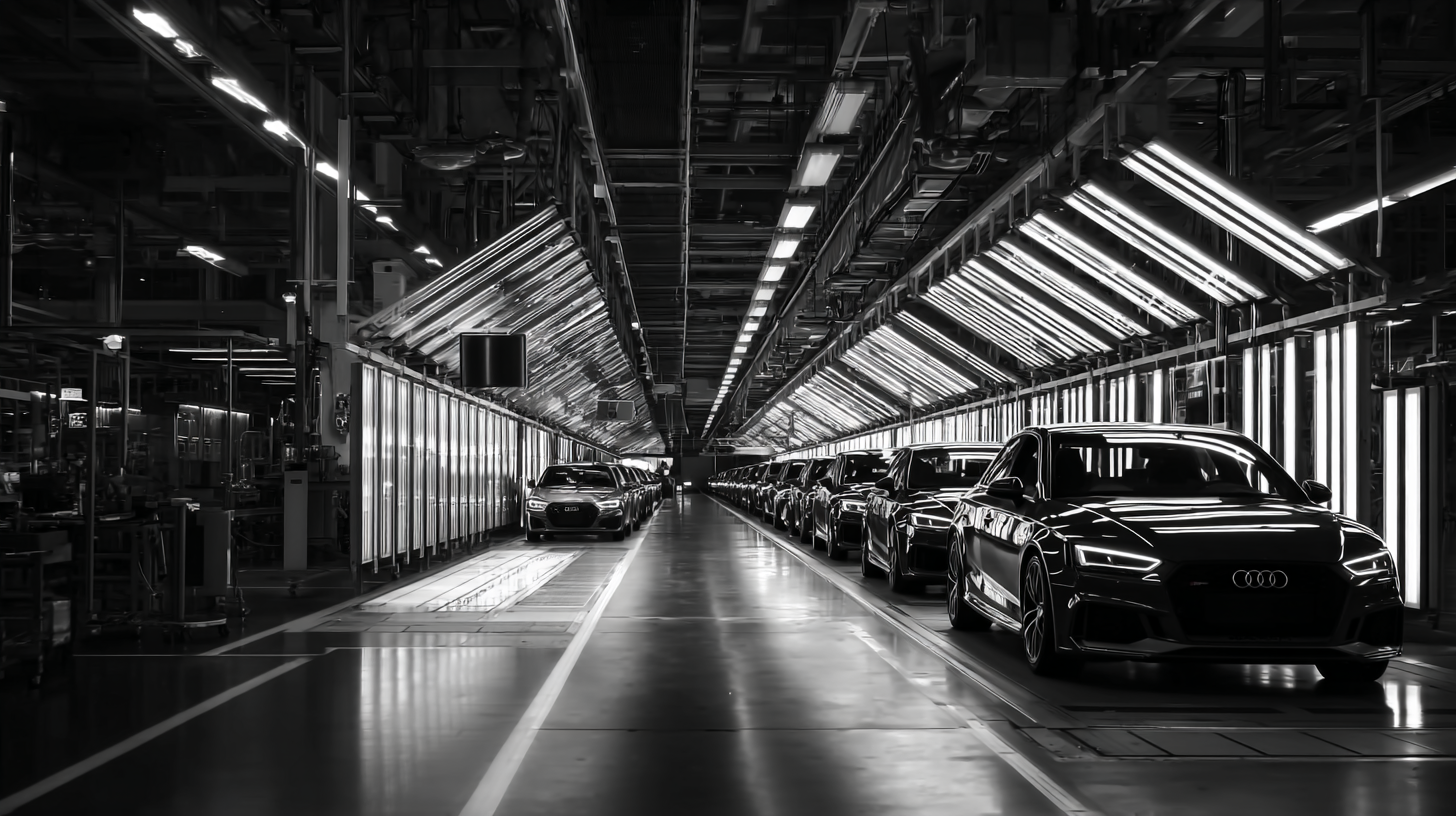
Chinese Manufacturing Elevating Global Standards with the Best Audi Auto Parts
In recent years, the Chinese manufacturing industry has emerged as a pivotal player in setting global standards, particularly in the automotive sector. With a focus on innovation and quality, Chinese companies are not only meeting but exceeding international benchmarks, especially in the production of Audi auto parts.

As we look toward 2025, it is essential to understand the industry dynamics at play and how these advancements are influencing the global marketplace. This blog will explore the latest trends in Chinese manufacturing, the growing importance of Audi auto parts, and the solutions that can be leveraged to enhance product reliability and performance.
As the landscape continues to evolve, the commitment to excellence in manufacturing will play a crucial role in shaping the future of automotive components worldwide.
The Rise of Chinese Auto Parts in the Global Market
The global auto parts market is witnessing a significant shift as Chinese manufacturers emerge as key players, particularly in the production of high-quality Audi components. This rise is not merely coincidental; it reflects China's concerted efforts in innovation and quality control that align with international standards. As a result, consumers and businesses alike are increasingly recognizing the value and reliability of Chinese auto parts, which are proving to be a competitive alternative to traditional suppliers.
The ascent of Chinese auto parts is largely attributed to advancements in technology and a robust supply chain that can efficiently meet the demands of the global automotive industry. Manufacturers in China are now able to offer a diverse range of Audi auto parts that not only match the original equipment manufacturer (OEM) standards but often exceed them. This commitment to quality and performance is encouraging automakers worldwide to rethink their sourcing strategies, leading to a more integrated and competitive global market where Chinese parts are a crucial component of vehicle production. As this trend continues, the influence of Chinese auto parts on global manufacturing standards is undeniable, presenting exciting opportunities for both local and international stakeholders.
Chinese Manufacturing Elevating Global Standards with the Best Audi Auto Parts
| Part Type | Material | Production Volume (Units/Year) | Quality Certification | Export Markets |
|---|---|---|---|---|
| Brake Pads | Ceramic | 1,500,000 | ISO 9001 | North America, Europe |
| Lightweight Alloy Wheels | Aluminum | 800,000 | TS16949 | Middle East, Asia |
| Fuel Injectors | Stainless Steel | 2,000,000 | ISO 14001 | South America, Africa |
| Shock Absorbers | Polyurethane | 1,200,000 | OE Spec Standards | Australia, Canada |
Innovations in Manufacturing: Setting New Standards for Audi Parts
In recent years, Chinese manufacturing has emerged as a powerhouse, particularly in the automotive sector, where it is redefining quality benchmarks by producing top-tier Audi auto parts. The innovations within these manufacturing processes are not only enhancing efficiency but are also elevating the overall standard of automotive components. Manufacturers are leveraging advanced technologies such as AI, robotics, and IoT to streamline production workflows, ensuring that each part meets the exacting standards set by Audi.
Moreover, the focus on sustainability and eco-friendly production methods has become a hallmark of this new wave of manufacturing. Companies are adopting green technologies and materials, reducing waste and energy consumption while maintaining high-quality outputs. Such developments not only contribute to the environment but also resonate strongly with consumers who are increasingly prioritizing sustainability in their purchasing decisions. As Chinese manufacturers continue to innovate, they set a precedent for global standards in the automotive industry, showcasing that excellence can indeed originate from diverse geographical landscapes.
Quality Control Practices in Leading Chinese Factories
The landscape of manufacturing in China is evolving, with quality control becoming a critical focus in leading factories across the nation. As global standards rise, Chinese manufacturers are implementing rigorous quality control practices to ensure that their auto parts, including those for premium vehicles, meet international specifications. This shift towards enhanced quality assurance showcases China's commitment to improving its manufacturing credibility and competing in the global market.
In addition to bolstering quality measures, Chinese companies are increasingly investing in advanced industries, specifically in technology and innovation. This transition is pivotal as China aims to redefine its manufacturing model away from traditional mass production towards high-tech and specialized outputs. By emphasizing quality in production processes and investing in innovative capabilities, Chinese manufacturers are not only meeting but also elevating global standards for auto parts, which is essential for gaining the trust of international clients amidst challenging trade dynamics.
Comparative Analysis: Chinese Audi Parts vs. Global Competitors
The automotive industry is witnessing a significant shift as Chinese manufacturing rises to prominence, particularly in the realm of Audi auto parts. A comparative analysis reveals that Chinese Audi parts not only meet but often exceed the rigorous standards set by global competitors. Enhanced production techniques, stringent quality controls, and advanced technology play vital roles in elevating the manufacturing capabilities in China. These components demonstrate exceptional reliability and performance, making them a compelling choice for consumers and automotive professionals alike.

When evaluating the advantages of Chinese auto parts, cost-effectiveness stands out as a major benefit. With competitive pricing structures, these parts offer significant savings without compromising quality. Furthermore, the increasing emphasis on innovation within Chinese factories ensures that they remain at the cutting edge of automotive technology. In contrast to traditional suppliers, Chinese manufacturers are rapidly adapting to market demands and changing consumer preferences, establishing a formidable presence in the global auto parts arena. As a result, choosing Chinese-made Audi parts is becoming an increasingly viable option for those seeking value and performance.
The Future of Automotive Manufacturing: Trends from China
The automotive manufacturing landscape is undergoing a remarkable transformation, with China's influence becoming increasingly pronounced. As Chinese manufacturers elevate global standards in the production of high-quality auto parts, they are setting new benchmarks that resonate across the industry. This shift is not only about meeting demand but also about embracing innovative practices and technologies that enhance efficiency and sustainability.

Recent trends indicate a strong focus on automation and digitization within China's automotive sector. With the rise of smart factories, the integration of artificial intelligence and the Internet of Things (IoT) is revolutionizing traditional manufacturing processes. This not only streamlines operations but also ensures greater precision in the production of components. Furthermore, environmentally friendly practices are gaining traction, as manufacturers prioritize sustainable materials and energy-efficient processes to meet global environmental standards.
As Chinese manufacturers continue to innovate, the implications for the global automotive market are profound. Enhanced production capabilities and a commitment to quality are positioning China as a leader in the automotive industry, influencing supply chains and consumer choices worldwide. This ongoing evolution underscores the importance of China as a key player in shaping the future of automotive manufacturing.



